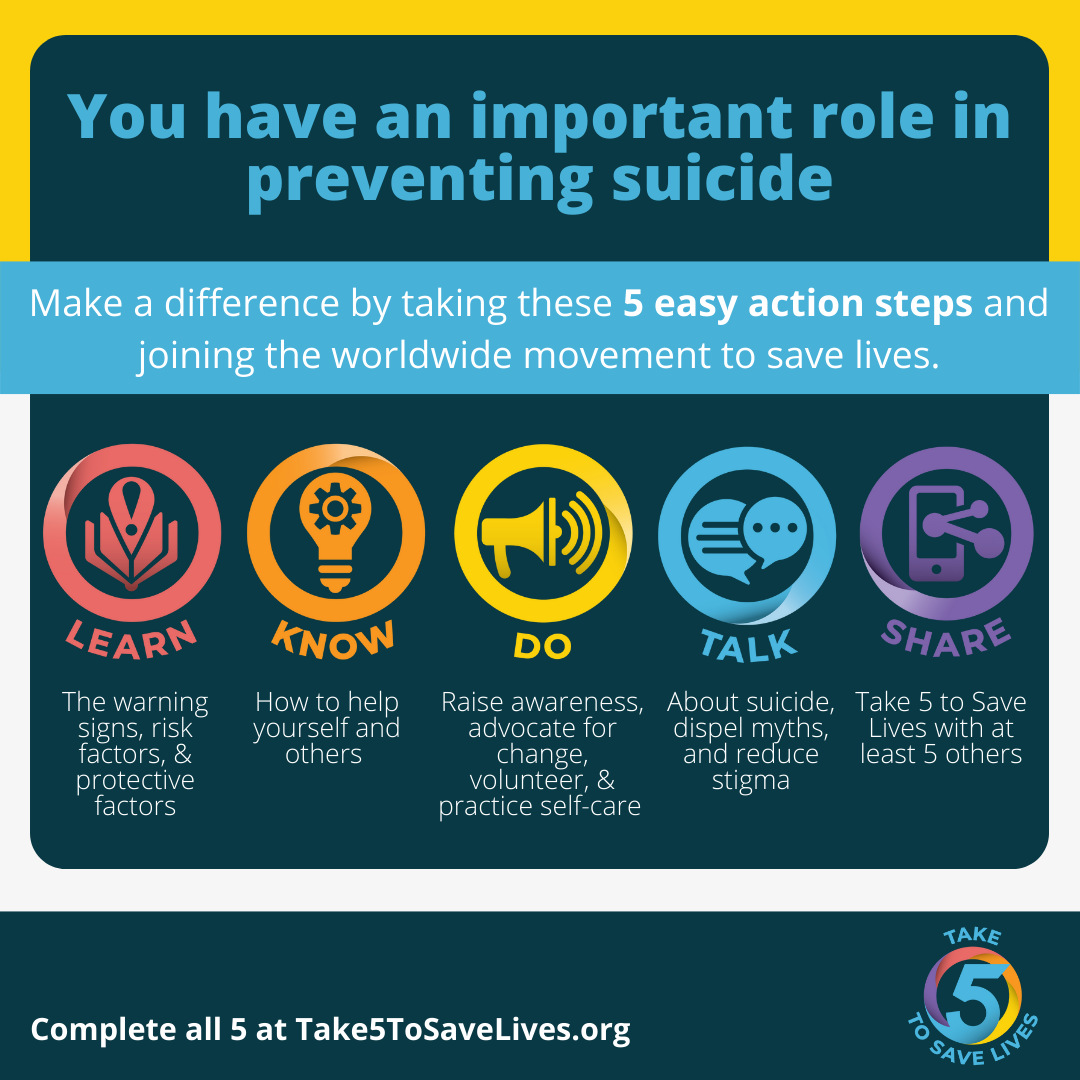September is Suicide Prevention Month
By Lori Potter, MA, LCMHCS
September is National Suicide Prevention Month, aimed at raising awareness about suicide and the people who are affected by it. According to the Suicide Prevention Resource Center, during the month of September alone, approximately 1.3 million people in the US will have suicidal thoughts, 142,000 will attempt suicide, and 4000 people will die by suicide. These numbers are both staggering and heartbreaking, and highlight how suicide is both a mental health and public health crisis in our country. By increasing widespread community knowledge of common warning signs for suicide and offering resources for what to do if you or someone you know is struggling with thoughts of taking their own life, we all can play a role in preventing suicide.
One of the most important aspects of raising awareness is knowing the warning signs that might suggest a person in your life is considering suicide.
For adults, some of these warning signs include the following:
Talking about or making plans for suicide.
Acting anxious or agitated; behaving recklessly.
Talking about being a burden to others.
Talking about feeling trapped or in unbearable pain.
Increasing the use of alcohol or drugs.
Talking about feeling hopeless or having no reason to live
Sleeping too little or too much.
Withdrawing or feeling isolated.
Showing rage or talking about seeking revenge.
Displaying extreme mood swings.
Risk is greater if a behavior is new or has increased, and if it seems related to a painful event, loss, or change
For youth, some of these warning signs include the following:
Talking about or making plans for suicide.
Expressing hopelessness about the future.
Displaying severe/overwhelming emotional pain or distress.
Showing worrisome changes in behavior, particularly in combination with the warning signs above, including significant:
Withdrawal from or changing social connections/situations.
Changes in sleep (increased or decreased).
Anger or hostility that seems out of character or out of context.
Recent increased agitation or irritability.
Suicide is difficult and scary to talk about. However, it is important to know that research indicates that talking about suicide and asking questions if you are concerned about someone does not put ideas in their head or increase the likelihood that they will act on those thoughts. If you know someone is struggling, reach out and offer to listen. Talking about suicide safely and responsibly can reduce negative stigma and help someone be more likely to get support and help. If you learn that they are considering suicide, or are noticing the above warning signs, please encourage them to reach out for help.
If you or someone you know are struggling and considering suicide, there is now a Crisis Line similar to 911 for mental health and suicide. Call 988 to reach this crisis hotline, or Text “SAVE” to 741-741. The 988 Lifeline provides 24/7, free and confidential support for people in distress, prevention and crisis resources for you or your loved ones.
‘Suicide is not inevitable for anyone. By starting the conversation, providing support, and directing help to those who need it, we can prevent suicides and save lives. Evidence shows that providing support services, talking about suicide, reducing access to means of self-harm, and following up with loved ones are just some of the actions we can all take to help others.’
For more information on action steps you can take, visit Take5ToSaveLives.
Educating yourself, staying connected and reaching out for help, offering help and connection to others, and supporting mental health initiatives aimed at reducing suicide are ways that each of us can get involved and save lives.


